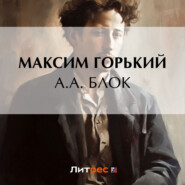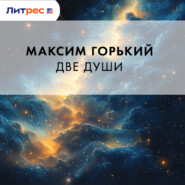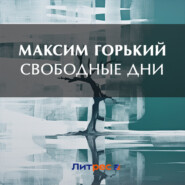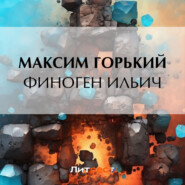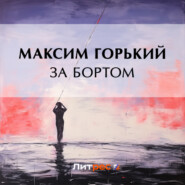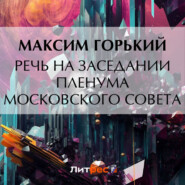По всем вопросам обращайтесь на: info@litportal.ru
(©) 2003-2025.
✖
Mother
Настройки чтения
Размер шрифта
Высота строк
Поля
"Why? They have the desire, too," answered the fellow, rubbing his chin. "The times are so now that if you don't think, you might as well lie down and die. But the people don't want to die; and so they've begun to make their brains work. 'Geology' – what's that?"
Pavel explained.
"We don't need it!" Yefim said, replacing the book on the shelf.
Rybin sighed noisily, and said:
"The peasant is not so much interested to know where the land came from as where it's gone to, how it's been snatched from underneath his feet by the gentry. It doesn't matter to him whether it's fixed or whether it revolves – that's of no importance – you can hang it on a rope, if you want to, provided it feeds him; you can nail it to the skies, provided it gives him enough to eat."
"'The History of Slavery,'" Yefim read out again, and asked Pavel: "Is it about us?"
"Here's an account of Russian serfdom, too," said Pavel, giving him another book. Yefim took it, turned it in his hands, and putting it aside, said calmly:
"That's out of date."
"Have you an apportionment of land for yourself?" inquired Pavel.
"We? Yes, we have. We are three brothers, and our portion is about ten acres and a half – all sand – good for polishing brass, but poor for making bread." After a pause he continued: "I've freed myself from the soil. What's the use? It does not feed; it ties one's hands. This is the fourth year that I'm working as a hired man. I've got to become a soldier this fall. Uncle Mikhaïl says: 'Don't go. Now,' he says, 'the soldiers are being sent to beat the people.' However, I think I'll go. The army existed at the time of Stepan Timofeyevich Razin and Pugachev. The time has come to make an end of it. Don't you think so?" he asked, looking firmly at Pavel.
"Yes, the time has come." The answer was accompanied by a smile. "But it's hard. You must know what to say to soldiers, and how to say it."
"We'll learn; we'll know how," Yefim said.
"And if the superiors catch you at it, they may shoot you down," Pavel concluded, looking curiously at Yefim.
"They will show no mercy," the peasant assented calmly, and resumed his examination of the books.
"Drink your tea, Yefim; we've got to leave soon," said Rybin.
"Directly." And Yefim asked again: "Revolution is an uprising, isn't it?"
Andrey came, red, perspiring, and dejected. He shook Yefim's hand without saying anything, sat down by Rybin's side, and smiled as he looked at him.
"What's the trouble? Why so blue?" Rybin asked, tapping his knee.
"Nothing."
"Are you a workingman, too?" asked Yefim, nodding his head toward the Little Russian.
"Yes," Andrey answered. "Why?"
"This is the first time he's seen factory workmen," explained Rybin. "He says they're different from others."
"How so?" Pavel asked.
Yefim looked carefully at Andrey and said:
"You have sharp bones; peasants' bones are rounder."
"The peasant stands more firmly on his feet," Rybin supplemented. "He feels the ground under him although he does not possess it. Yet he feels the earth. But the factory workingman is something like a bird. He has no home. To-day he's here, to-morrow there. Even his wife can't attach him to the same spot. At the least provocation – farewell, my dear! and off he goes to look for something better. But the peasant wants to improve himself just where he is without moving off the spot. There's your mother!" And Rybin went out into the kitchen.
Yefim approached Pavel, and with embarrassment asked:
"Perhaps you will give me a book?"
"Certainly."
The peasant's eyes flashed, and he said rapidly:
"I'll return it. Some of our folks bring tar not far from here. They will return it for me. Thank you! Nowadays a book is like a candle in the night to us."
Rybin, already dressed and tightly girt, came in and said to Yefim:
"Come, it's time for us to go."
"Now, I have something to read!" exclaimed Yefim, pointing to the book and smiling inwardly. When he had gone, Pavel animatedly said, turning to Andrey:
"Did you notice those fellows?"
"Y-yes!" slowly uttered the Little Russian. "Like clouds in the sunset – thick, dark clouds, moving slowly."
"Mikhaïl!" exclaimed the mother. "He looks as if he had never been in a factory! A peasant again. And how formidable he looks!"
"I'm sorry you weren't here," said Pavel to Andrey, who was sitting at the table, staring gloomily into his glass of tea. "You could have seen the play of hearts. You always talk about the heart. Rybin got up a lot of steam; he upset me, crushed me. I couldn't even reply to him. How distrustful he is of people, and how cheaply he values them! Mother is right. That man has a formidable power in him."
"I noticed it," the Little Russian replied glumly. "They have poisoned people. When the peasants rise up, they'll overturn absolutely everything! They need bare land, and they will lay it bare, tear down everything." He spoke slowly, and it was evident that his mind was on something else. The mother cautiously tapped him on the shoulder.
"Pull yourself together, Andriusha."
"Wait a little, my dear mother, my own!" he begged softly and kindly. "All this is so ugly – although I didn't mean to do any harm. Wait!" And suddenly rousing himself, he said, striking the table with his hand: "Yes, Pavel, the peasant will lay the land bare for himself when he rises to his feet. He will burn everything up, as if after a plague, so that all traces of his wrongs will vanish in ashes."
"And then he will get in our way," Pavel observed softly.
"It's our business to prevent that. We are nearer to him; he trusts us; he will follow us."
"Do you know, Rybin proposes that we should publish a newspaper for the village?"
"We must do it, too. As soon as possible."
Pavel laughed and said:
"I feel bad I didn't argue with him."
"We'll have a chance to argue with him still," the Little Russian rejoined. "You keep on playing your flute; whoever has gay feet, if they haven't grown into the ground, will dance to your tune. Rybin would probably have said that we don't feel the ground under us, and need not, either. Therefore it's our business to shake it. Shake it once, and the people will be loosened from it; shake it once more, and they'll tear themselves away."
The mother smiled.
"Everything seems to be simple to you, Andriusha."












